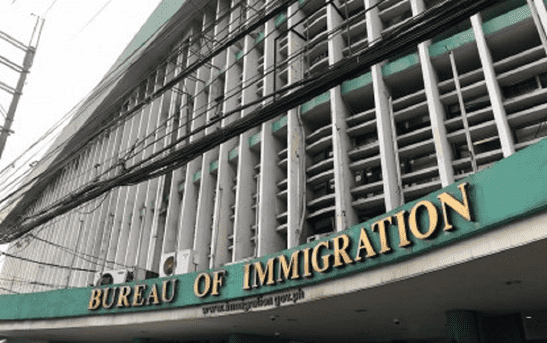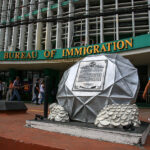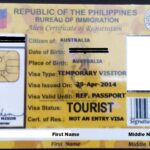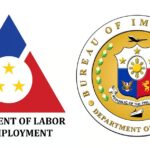With its vibrant culture, growing economy, lower living costs, and English-speaking population, the Philippines can be an attractive destination for foreigners seeking work opportunities. Whether you’re drawn to the bustling tech hubs of Manila or the serene beachside coworking spaces in Cebu, you must understand the legal pathways before you can get employed. With our help, you’ll find the most suitable visa to work in the Philippines.
Can Foreigners Work in the Philippines?
Yes, foreigners can work in the Philippines, but the process is tightly regulated to protect local employment. The Department of Labor and Employment (DOLE) and the Bureau of Immigration (BI) oversee foreign work permits, ensuring that only qualified individuals fill roles where no suitable Filipino candidates are available. Digital nomads and foreign nationals looking to start their own business can also work in the country.
To work legally, foreigners must secure the appropriate visa and permit, which vary based on the job type, duration, and employer.
Work Permits: Understanding the Alien Employment Permit (AEP)
The primary pathway to legal employment for foreigners is the Alien Employment Permit (AEP), issued by the DOLE. This permit is required for any foreigner engaging in gainful employment, whether with a local company or a foreign entity operating in the Philippines. To obtain an AEP:
- Employer Sponsorship: Your employer must justify hiring a foreigner by proving the position requires specialized skills unavailable locally.
- Application Process: Submit documents like a valid passport, job contract, and company registration to the DOLE. Processing typically takes 2-4 weeks.
- Validity: AEPs are usually valid for one year or the duration of the employment contract and are renewable annually.
You can also apply for a Provisional Work Permit to start working immediately while your AEP is being processed.
For short-term employment (up to 6 months), you should get a Special Work Permit (SWP) instead. It should be noted that a sponsorship petition should be obtained from the Philippine-based employer before you can apply for an SWP.
Securing the Right Work Visa
Once you obtain your work permit (usually AEP), you’ll also need a work visa to legally reside and work in the Philippines. The most common options include:
- 9(g) Pre-Arranged Employment Visa: Ideal for employees of registered companies. Requires an AEP and proof of employment. Valid for the contract duration, typically 1-3 years.
- Special Work Permit (SWP): Suitable for short-term assignments (up to six months), such as consultancy or project-based work. Does not require an AEP in some cases.
- PEZA Visa (formerly 47(a)(2) Special Non-Immigrant Visa): The PEZA Visa is issued to foreign nationals working for PEZA-registered companies operating within Philippine economic zones (IT parks, manufacturing zones, etc.). Other specific economic zones offer their own types of visas.
Navigating Restricted Occupations
Under the Anti-Dummy Law and other regulations, the Philippines reserves certain professions exclusively for Filipino citizens. Restricted roles include doctors, lawyers, engineers, and retail trade positions. Foreigners can work in these fields only in exceptional cases, such as when employed by international organizations or as consultants with special permits. Always verify if your desired role is open to foreigners before pursuing opportunities.
Other Legal Ways to Work in the Philippines
- Digital Nomad Visa: This allows remote workers employed by foreign companies to legally live and work in the country (although you can only work for foreign companies). It’s an ideal option for freelancers, tech professionals, and online entrepreneurs seeking flexibility while staying long-term.
- Starting Your Own Business: Foreigners can also work legally by starting a business in the Philippines. This involves registering with the DTI or SEC, securing a local business permit, and applying for an Investor’s Visa (such as the SIRV). These visas grant long-term residency and the right to manage your enterprise.
- Special Resident Retiree’s Visa (SRRV) – With Work Rights
Though primarily for retirees, the SRRV can be expanded under specific conditions to allow part-time work, consultancy, or business ownership, especially for professionals in specialized industries.
- 13(a) Non-Quota Immigrant Visa: If you’re married to a Filipino citizen, you can apply for this visa, which grants permanent residency and work rights.
Tips for a Smooth Transition
- Learn Local Labor Laws: Familiarize yourself with the Philippine Labor Code to understand your rights, including overtime pay and termination procedures.
- Stay Compliant: Regularly check visa and permit limitations and expiration dates to avoid fines or deportation.
- Consult with Work Visa Philippines: We specialize in helping foreigners secure employment permits and visas. Contact us to ensure your requirements are complete, accurate, and fully compliant.
Final Thoughts
Working legally in the Philippines as a foreigner is achievable with proper planning and adherence to regulations. You can navigate the process confidently by securing an AEP, obtaining the correct visa, and understanding restricted occupations. Partnering with a reliable employer and staying informed about local laws will ensure a smooth experience. Contact us for professional assistance, so you won’t have to worry about paperwork or potential processing delays.
Are You Looking for the Easiest Way to Apply for a Philippine Visa?
Let Work Visa Philippines handle the process for you. Our experienced lawyers and immigration experts will help you prepare and file your documents with the appropriate government agencies. We’ll ensure everything is complete, accurate, and fully compliant.
Reach out today, and we’ll guide you every step of the way.
- Contact Us here
- Fill Out the Form Below
- Call us at +63 (02) 8540-9623





